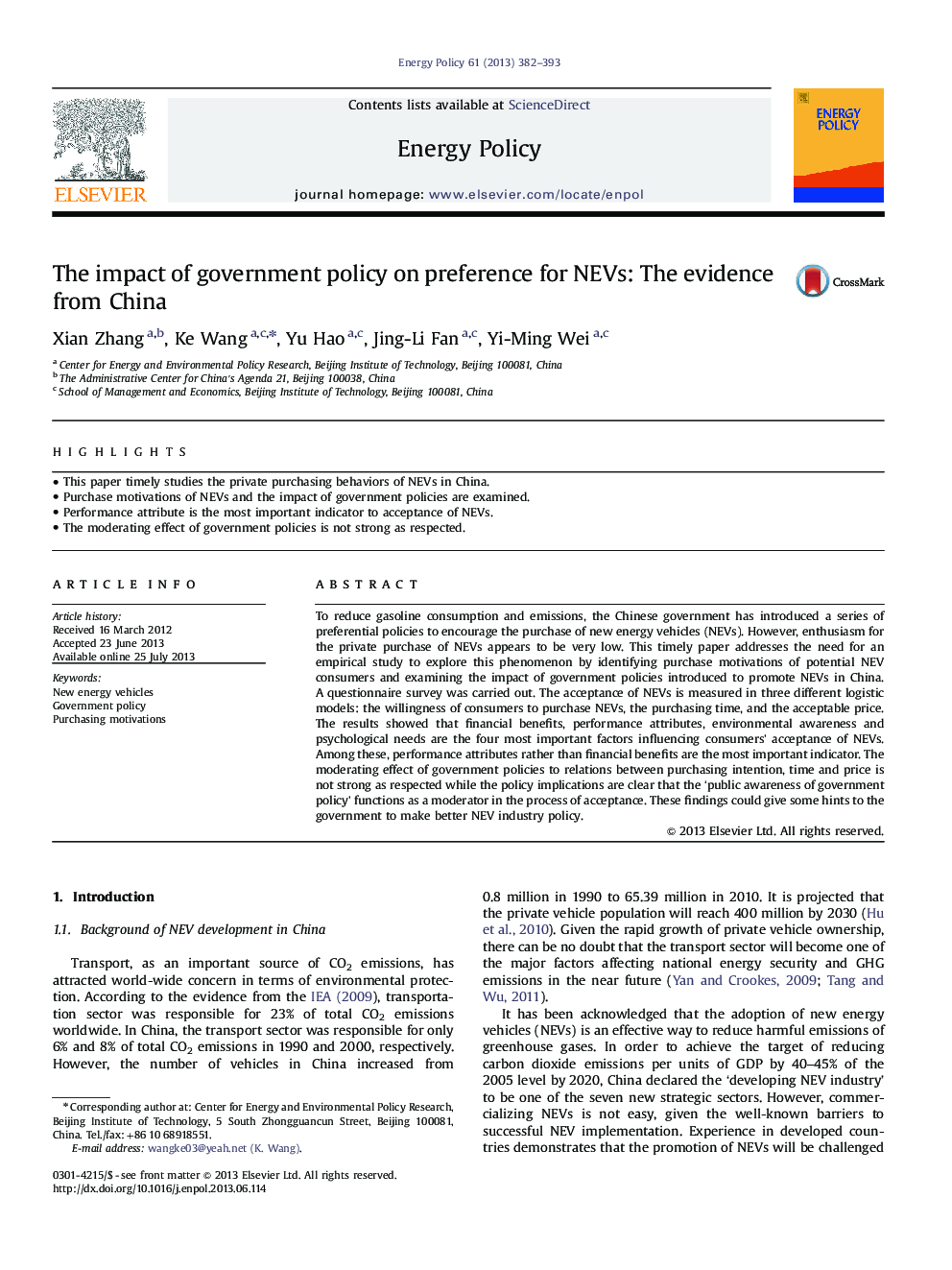| Article ID | Journal | Published Year | Pages | File Type |
|---|---|---|---|---|
| 7404273 | Energy Policy | 2013 | 12 Pages |
Abstract
To reduce gasoline consumption and emissions, the Chinese government has introduced a series of preferential policies to encourage the purchase of new energy vehicles (NEVs). However, enthusiasm for the private purchase of NEVs appears to be very low. This timely paper addresses the need for an empirical study to explore this phenomenon by identifying purchase motivations of potential NEV consumers and examining the impact of government policies introduced to promote NEVs in China. A questionnaire survey was carried out. The acceptance of NEVs is measured in three different logistic models: the willingness of consumers to purchase NEVs, the purchasing time, and the acceptable price. The results showed that financial benefits, performance attributes, environmental awareness and psychological needs are the four most important factors influencing consumers' acceptance of NEVs. Among these, performance attributes rather than financial benefits are the most important indicator. The moderating effect of government policies to relations between purchasing intention, time and price is not strong as respected while the policy implications are clear that the 'public awareness of government policy' functions as a moderator in the process of acceptance. These findings could give some hints to the government to make better NEV industry policy.
Keywords
Related Topics
Physical Sciences and Engineering
Energy
Energy Engineering and Power Technology
Authors
Xian Zhang, Ke Wang, Yu Hao, Jing-Li Fan, Yi-Ming Wei,
